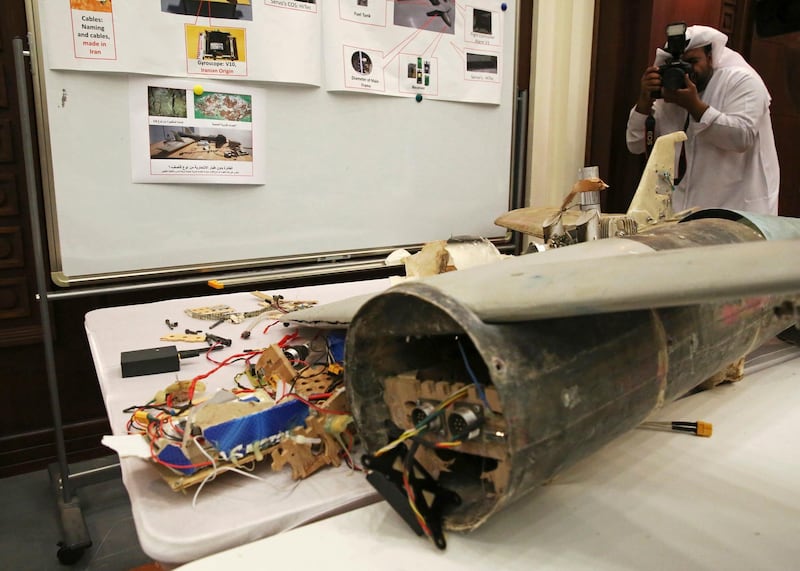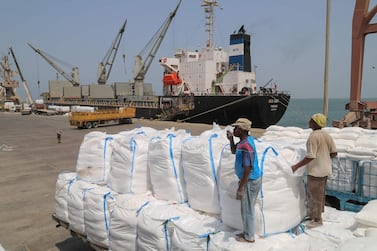Yemen's Houthi rebels claim to have developed new missiles and drones to use on the Saudi-led Arab Coalition supporting the government.
The weapons were unveiled at exhibition on Sunday attended by Mahdi Al Mashat, president of the rebel’s ruling council, the pro-Houthi Saba news agency reported.
The agency said the exhibition displayed "new models of ballistic and winged missiles and drones made in Yemen", including the Quds-1 missile, Samad-3 drone and the Qasef-2K drone.
The Iran-backed rebels have recently stepped up attacks on Saudi Arabia, including two recent strikes on Abha airport that killed one person and wounded more than 30.
“The continuous air strikes on Saudi airports are an option imposed by the continuation of the war," Houthi official Mohammed Abdel Salam, who led the rebel delegation at UN-brokered peace talks in Stockholm in December, said at the exhibition.
The Arab Coalition intervened in Yemen in 2015 to restore the internationally recognised government, which was pushed out of the capital, Sanaa, after the Houthis seized it in late 2014.
On Saturday, the coalition said it had intercepted drones rebels launched towards the kingdom from Sanaa.
“The drones were destroyed in air space,” the coalition said.
The Houthis' Al Masirah news channel reported earlier on Saturday that the rebels had attacked Saudi airports in Abha and Jizan with Qasef-2K drones.
The increase in Houthi attacks on Saudi Arabia coincides with escalating tension between Iran and the US over mounting American sanctions on Tehran, its armed forces and leadership since Washington withdrew last year from a 2015 deal to curtail Iran's nuclear programme.
While Iran denies arming the Houthis, investigations by the coalition, US, UN and independent monitors have found evidence of Iranian technology in debris from drone and missile attacks by the rebels.
Hopes for a negotiated end to Yemen's war rose after the Sweden talks resulted in a ceasefire agreement for the port city of Hodeidah and other trust-building measures.
But these have yet to be fully implemented and fighting continues on several fronts across the country.
Government forces repelling a Houthi incursion into the southern province of Dhalea reported further gains on Sunday.
“Our forces took full control of the strategic Black Hills and Al Karameed area north-east of Qatabah, and advanced in Al Zuraibyat area north of Qatabah,” said Lt Waheed Al Sufyani, a spokesman for the Security Belt Forces.
Lt Al Sufyani said at least 16 Houthi fighters were killed in the fighting, while the government forces lost five men.
Dhalea is symbolically important to the government because it was the first province to be retaken from the Houthis in 2015.
Also on Sunday, the coalition launched four air strikes at a training base in rebel-held Ibb province north of Dhalea, a military source told The National.
“The raids targeted Houthi gatherings in Al Hamza military base in Al Sabrah district, causing big losses among fighters who were training there."






